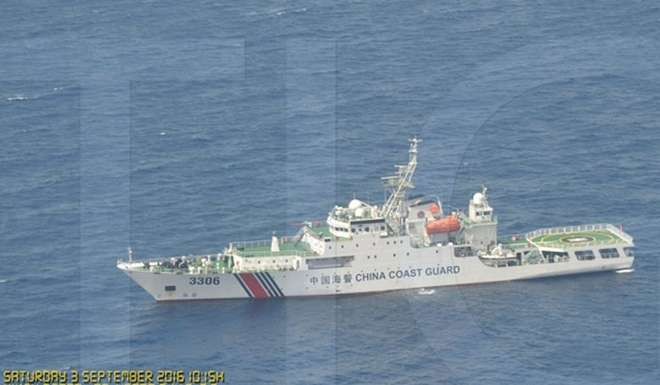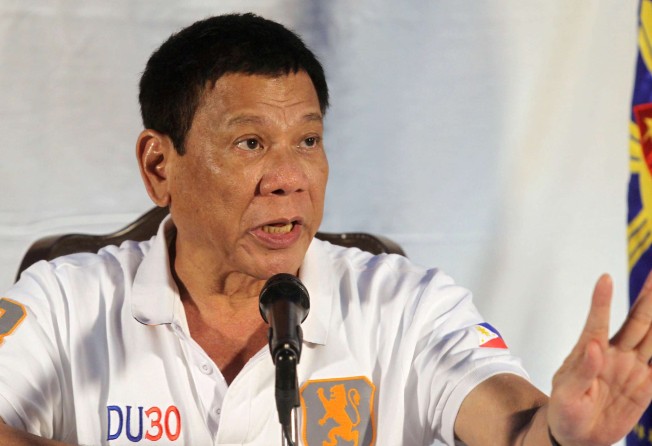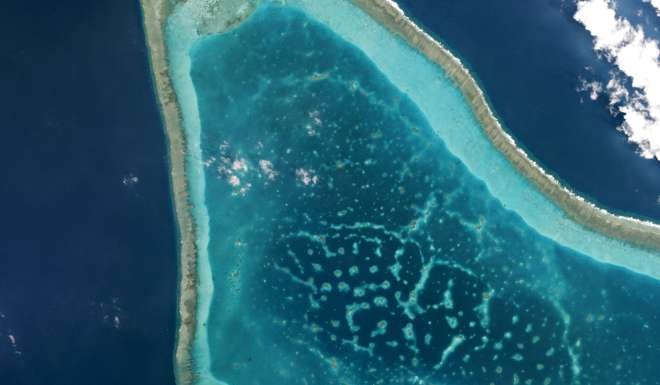
US military should play no part in Duterte’s bloody ‘reckoning’ with China
Doug Bandow says if the Philippines president insists on armed conflict over Scarborough Shoal at some point, he cannot expect the US to do the fighting

Philippine President Rodrigo Duterte is threatening a “reckoning” with China over the disputed Scarborough Shoal. Military misadventure by Manila could drag the US and its other allies into a catastrophic conflict over Filipino interests of minimal importance to America.
China is at odds with many of its neighbours over control of islands and waters throughout East Asia. Among the bitterest spats is that with Manila over Scarborough Shoal. In July, an international tribunal ruled for the Philippines. However, China refused to participate in the case and has shown no inclination to retreat.

Duterte is open to talks, but only based on “that arbitral judgment”. He seemed ready for conflict, announcing, “there will come a time that we will have to do some reckoning about this”.
“I guarantee to them, if you are the ones who enter here, it will be bloody and we will not give it to them easily. It will be the bones of our soldiers and even my own.”
In Duterte’s imagined reckoning, he almost certainly does not expect most of the blood to come from Filipinos. That’s where Americans are supposed to come in. After all, Manila doesn’t have much of a military. The Philippines spends less than one per cent of GDP on defence. That is why it wants to borrow the US military in any conflict. The two nations purport to be allies under the Mutual Defence Treaty of 1951. Alas, the pact is “mutual” in name only. The Philippines’ only job is to let America defend it.

Despite Philippine pressure for a liberal interpretation of the treaty, the Barack Obama administration has avoided explicitly committing itself to protect Scarborough Shoal.
Let it be Filipino rather than American forces which do the bleeding
However worthwhile base access and other activities may be – America should be intervening less, not more, around the world – they do not require a US security guarantee. But in April, the Obama administration announced it would send more aircraft and personnel to rotate through the Philippines while conducting joint air and naval patrols with its forces.
Although US defence chief Ash Carter said it was “trying to tamp down tensions”, then Philippine defence secretary Voltaire Gazmin was more forthright: the US “presence here, will deter uncalled for actions by the Chinese”.
Actually, the Philippines matters little for US security. Confronting a nuclear-armed power over Scarborough Shoal or similar disputed territories would be madness. If Manila wants to defend its interest against China, it should create a military capable of doing so. If the China-Philippines dispute reaches the “reckoning” predicted by Duterte, then let it be Filipino rather than American forces which do the bleeding.
Doug Bandow is a senior fellow at the Cato Institute and a former special assistant to president Ronald Reagan